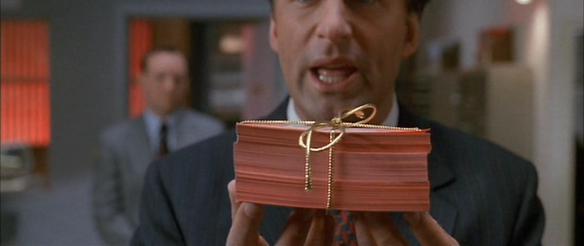 Brian Boland, who leads the Ads Product Marketing team at Facebook, has published a very interesting and much discussed piece on the Facebook Business Blog about the decrease in organic reach most brand publishers have been, are and will be seeing for their posts.
Brian Boland, who leads the Ads Product Marketing team at Facebook, has published a very interesting and much discussed piece on the Facebook Business Blog about the decrease in organic reach most brand publishers have been, are and will be seeing for their posts.
Boland lays the fault for that dropping reach at the feet of two things: First, there’s more content being produced than ever before and Second, this is actually how the News Feed is supposed to work, pulling out what it deems to be important – or of value – and showing it off while hiding other posts. He specifically denies that reach is being throttled in an effort to encourage companies to buy ads to boost that reach.
We’ve no choice but to take Boland at his word. But there are several points at which it’s easy to contest what he says here:
First, for most brands (at least in my experience) the falloff wasn’t a gradual thing; It was sudden. One month everything was running at a certain level and the next the bottom fell all the way out. That’s not because 300% more people were posting and fighting for New Feed position than they were the month before. That’s because *something* about the algorithm changed and it directly impacted how brands were doing business.
Second, it’s a bit hard to take his initial statements about organic reach *not* being tied to a desire for ad revenue when the entire second half of the post is filled with examples and stories about how buying ads is the smart play for brands who actually want to reach people. It’s a bit like being told “No, you won’t die unless I amputate your leg. But let me tell you the 17 reasons amputating your leg is the only way you’ll live.”
But the part that sticks out for me most is that this is business as usual for Facebook, that they’re just doing what they should be doing. Which is fine, right up to the point where you realize the following:
They’re telling you what should or shouldn’t be important to you.
Put all the social media strategy concerns aside for a moment and think of how monumental that is. We’ve not only ceded control of what we see to Facebook (and others) but we’ve given up the ability to, on any level, make value designations for ourselves. And we’ve done this out of a sense of it being more convenient this way.
Facebook has often tried to compare itself to a newspaper, which often makes that same sort of decision-making. This or that story does make it into the paper (you can also use the analogy of a TV or radio broadcast if you life) and some don’t. Those decisions are out of the control of the reader and in the hands of someone else – a gatekeeper to use the vernacular – whose job it is to rank stories in order of importance. After a certain point there’s no more room for them.
But that analogy falls apart for me when you realize that Facebook is not the one producing the news, a term that’s loose enough to include everything from your aunt’s picture of her flowers to updates from your favorite retailer to a story from CNN about the federal budget. It’s the platform on which many news producers – again, using a fairly broad definition of the word – distribute their material.
So it’s not a newspaper, simply doing what it does. It’s more like a television set – the actual physical appliance – deciding what shows you can and can’t watch based on some unseen algorithm that allows for no override when you, the viewer, realize it’s not doing what you want it to.
It’s in that sense that Facebook, I think, needs to stop acting like a newspaper and we all stop thinking that “well that’s just how it works” is a legitimate rationale.
Instead it needs to act more like a newspaper stand, allowing for indiscriminate access to whatever material the audience would like and allowing each member of that audience to set their own priorities. X person wants this, Y person wants that and it’s up to them decide. And if they want everything – the proverbial firehose – that’s their choice as well.
To do that Facebook would need to stop basing an individual’s News Feed on each individual piece of content or the activity of others in someone’s network and start giving each user more control at the Page level. Let me mark This Page as a Tier 1, where I see everything they publish, this one as Tier 2 where I only see some of what’s published and so on.
*This* would be Facebook acting more like a neutral delivery platform than anything they’ve done before. Which of course means it likely won’t happen.
For brand publishers there’s some serious debating that needs to happen about what’s more valuable for them: Encouraging fans to consume content in the News Feed, where exposure is a dicey proposition or encouraging them to visit the Facebook Page directly to check for recent updates. And no, you’re not imagining things: That sounds like exactly how the web worked before there was such as thing as real-time streams, social networks or anything else. It was the static web and it was inconvenient. But right now there may be more value in making a Facebook page a destination site than something that’s about the stream.
That reality calls into question, though, the very value proposition of Facebook itself. If you’re pushing people to visit a Page directly as opposed to waiting until (or if) something crosses the News Feed, then what’s the value of doing *anything* on the rented land of Facebook where you’re constrained by a set of T&C that’s outside your control as opposed to building a site – or microsite – for a particular kind of content and owning the entire user experience, as well as capturing all the data that comes with that scenario?
It also reminds me of the existence of a technology that allows you to *not* have to bookmark all your favorite websites to see what’s new but still allows you to have absolute control over what you consume and what you do with it: RSS. That simple, neglected and much-derided format lets you see everything that’s new from a site, all within a “reader” that is completely neutral, treating content from one site in the same way it does all the others, with publishers themselves in charge of most of the user experience.
I’m not saying everyone needs to stop using Facebook for brand publishing tomorrow. Far from it, there’s still a lot to be said for the “fish where the fish are” philosophy. But right now we’re in an environment where the fisherman’s lines are being shortened by the people who own the lake and they’re being told they can reach more fish if they just buy this longer line, though making money off the longer line is totally not the reason the lines were cut in the first place.
Or, to put it another way. These leads are not for you.
That, to me, is making increasingly less sense.


